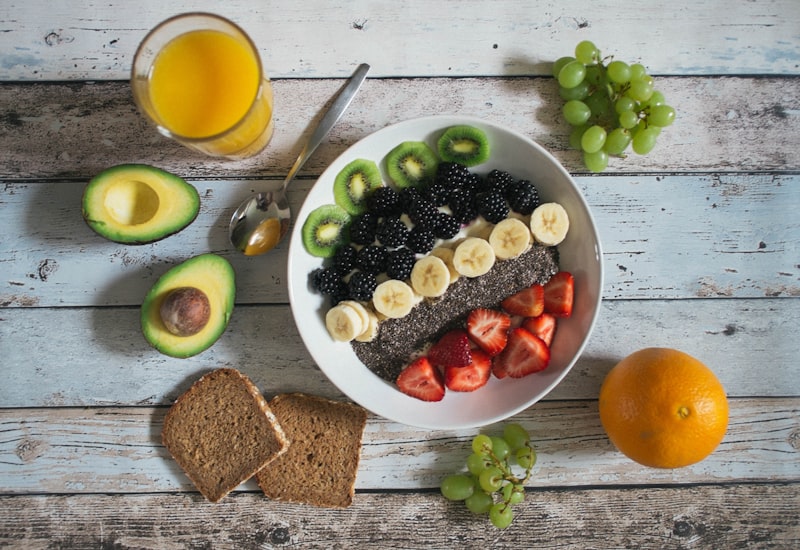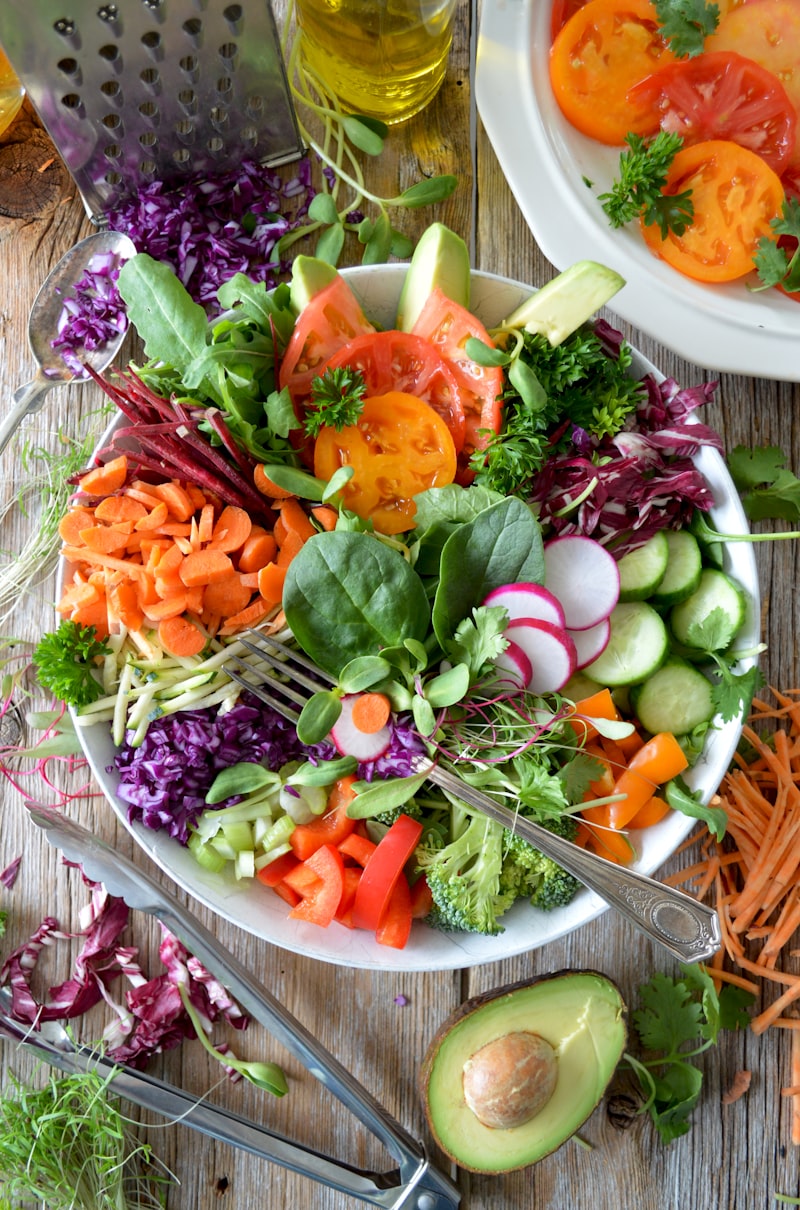Hey there! Are you a teenager trying to navigate the world of healthy eating? It can be tough with so many tempting snacks and fast food options around. But fear not! Adopting healthy eating habits now can set you up for a lifetime of good health and vitality.
First off, let’s talk about balance. It’s essential to include a variety of foods in your diet. Think of your plate as a canvas – fill it with vibrant colors from fruits and vegetables, lean proteins like chicken or tofu, whole grains such as brown rice or quinoa, and healthy fats like avocados or nuts. This combination ensures you get all the nutrients your growing body needs.
Next, hydration is key. Water should be your go-to beverage. It keeps you hydrated, helps maintain your energy levels, and supports your overall health. If you’re not a fan of plain water, try infusing it with slices of citrus fruits or refreshing cucumber for a tasty twist.
Snack smartly. Instead of reaching for chips or sugary treats, opt for nutritious snacks like Greek yogurt with berries, carrot sticks with hummus, or a handful of almonds. These options provide sustained energy and keep you feeling full longer.
Don’t skip meals, especially breakfast! It kickstarts your metabolism and gives you the energy to tackle the day ahead. Choose whole-grain cereals, oatmeal topped with fruits, or whole-wheat toast with peanut butter for a nutritious morning boost.

Lastly, listen to your body. Pay attention to hunger and fullness cues. Eating mindfully helps prevent overeating and promotes a healthy relationship with food.

Remember, healthy eating is about nourishing your body, not depriving it. By making small, sustainable changes, you can enjoy delicious food while feeling great inside and out.
Fueling Growth: The Ultimate Guide to Healthy Eating for Teenagers
Teenage years are a pivotal time for growth and development, making proper nutrition crucial. Fueling your body with the right foods not only supports physical growth but also enhances overall health and well-being. Here’s a comprehensive guide to healthy eating for teenagers, ensuring they get the nutrients they need to thrive.
A balanced diet for teenagers should include a variety of foods from all food groups. Focus on consuming plenty of fruits and vegetables, which provide essential vitamins, minerals, and antioxidants. Incorporate lean proteins like chicken, fish, beans, and nuts to support muscle development. Whole grains such as brown rice, whole wheat bread, and oats provide sustained energy and fiber for digestive health. Dairy products like milk, yogurt, and cheese are rich in calcium for strong bones and teeth.
Snacking is a normal part of a teenager’s day, but it’s important to choose nutritious options. Opt for fresh fruits, raw vegetables with hummus, or yogurt with granola instead of sugary snacks and sodas. These choices help maintain energy levels throughout the day without the crash that comes from consuming too much sugar.
Staying hydrated is essential for overall health. Encourage teenagers to drink plenty of water throughout the day, especially during physical activities. Limit sugary drinks like soda and fruit juices, as they can add unnecessary calories and contribute to dental issues.
Teaching teenagers about healthy eating habits sets the foundation for lifelong wellness. Involve them in meal planning and preparation to educate them about food choices and cooking skills. Encourage them to listen to their body’s hunger and fullness cues rather than eating out of boredom or stress.
Teenagers face unique challenges when it comes to food, including peer pressure, busy schedules, and exposure to fast food. Equip them with strategies to make healthy choices even in challenging situations. Discuss the importance of moderation and balance rather than strict diets or food restrictions.
By focusing on nutrient-dense foods, smart snacking, adequate hydration, and building healthy habits, teenagers can fuel their growth and support their overall well-being. Encouraging a positive relationship with food and empowering teenagers to make informed choices lays the groundwork for a healthy future.
Navigating Nutrition: Tips and Tricks for Teenage Healthy Eating Habits
When it comes to teenage years, navigating the world of nutrition can feel like a maze. With so much information out there, it’s easy to get overwhelmed. But fear not! Developing healthy eating habits as a teenager is not only essential for growth and development but also sets the stage for a lifetime of wellness. Here are some practical tips and tricks to help teenagers embrace healthy eating:
-
Balance is Key: Just like acing a tricky video game level, achieving a balanced diet requires strategy. Include a variety of foods from all food groups: fruits, vegetables, whole grains, lean proteins, and dairy (or alternatives). Think of your plate as a canvas where each color represents a different nutrient-packed food!
-
Start the Day Right: Breakfast isn’t just another meal; it’s your power-up for the day ahead. Opt for whole-grain cereals, oatmeal topped with fruits, or whole-wheat toast with eggs. These choices provide sustained energy and keep you focused during those early morning classes.
-
Snack Smart: Snacking doesn’t have to be a guilty pleasure. Instead of reaching for chips or candy, go for nutrient-rich options like yogurt with berries, a handful of nuts, or cut-up veggies with hummus. These snacks keep hunger at bay and provide essential vitamins and minerals.

Stay Hydrated: Just like fuel keeps a car running smoothly, water keeps your body functioning optimally. Aim for at least 8 glasses of water a day. If plain water seems boring, infuse it with slices of fruits like lemon or strawberries for a refreshing twist.
-
Mindful Eating: Ever found yourself mindlessly munching while binge-watching your favorite show? Instead, practice mindful eating. Pay attention to your body’s hunger and fullness cues. Eat slowly and savor each bite. This not only prevents overeating but also enhances the enjoyment of your meals.

Plan Ahead: As with any successful mission, planning is crucial. Take a few minutes each week to plan meals and snacks. This helps you make healthier choices and saves time during hectic weekdays.
-
Get Creative: Eating healthy doesn’t mean boring salads for every meal. Experiment with new recipes and flavors. Turn meal preparation into a fun activity by cooking with friends or family. You might discover a hidden talent for whipping up nutritious and delicious meals!
-
Moderation, Not Deprivation: Finally, remember that balance is about moderation, not deprivation. It’s okay to enjoy occasional treats. The key is to make healthy choices most of the time.
By incorporating these tips into your daily routine, you’ll not only fuel your body with the nutrients it needs but also lay a solid foundation for lifelong healthy eating habits. So, embark on this journey with curiosity and enthusiasm. Your future self will thank you!
Balancing Act: How to Introduce Healthy Foods to Teenagers Without the Drama
Firstly, it’s essential to understand that teenagers crave autonomy. They want to make their own decisions, especially when it comes to what they eat. Instead of dictating, involve them in the process. Take them grocery shopping and let them pick out fruits, veggies, and whole grains that appeal to them. This way, they feel empowered and more willing to try new foods.

Another strategy is to lead by example. Teenagers are observant, and they often mimic the behavior of adults around them. If they see you enjoying a colorful salad or snacking on fresh fruit, they’re more likely to follow suit. Make healthy eating a family affair, emphasizing that it’s not just a rule but a lifestyle choice.
Additionally, make healthy foods accessible and convenient. Stock the fridge with pre-cut veggies, yogurt, and other wholesome snacks that they can grab on the go. Teenagers are notorious for their busy schedules, so having nutritious options readily available increases the likelihood that they’ll choose them over less healthy alternatives.
It’s also crucial to be patient and persistent. Taste preferences develop over time, and what they might have refused once may become a favorite later on. Experiment with different recipes and cooking methods to find what resonates with their palate. Encourage them to try small portions without pressure or expectation.
Ultimately, the goal is to foster a positive relationship with food and empower teenagers to make informed choices. By involving them in the process, setting a good example, and making healthy options accessible, you can navigate the journey of introducing healthy foods to teenagers smoothly and without unnecessary drama.
Teenage Nutrition Decoded: Essential Foods Every Teen Should Eat
Navigating the world of teenage nutrition can be daunting with so much information available. What are the essential foods every teen should eat to support their growth and well-being? Let’s decode this vital aspect of adolescent health.
Firstly, protein is a cornerstone for teens. It’s crucial for muscle development, especially during growth spurts. Foods like lean meats, poultry, fish, eggs, beans, and nuts are excellent sources. These not only provide protein but also essential nutrients like iron and zinc, vital for overall health.
Next, don’t underestimate the power of fruits and vegetables. They’re packed with vitamins, minerals, and antioxidants that support immune function and overall health. Berries, citrus fruits, leafy greens, and colorful veggies should find their way onto every teen’s plate.
Carbohydrates often get a bad rap, but they’re essential for providing energy. Opt for whole grains like brown rice, whole wheat bread, oats, and quinoa over refined grains. These choices provide fiber, which aids in digestion and helps teens feel full longer.
Healthy fats are another critical component. Avocados, nuts, seeds, and fatty fish like salmon provide omega-3 fatty acids, which are beneficial for brain health and mood regulation. Including these fats helps teens stay focused and supports their emotional well-being.
Dairy or dairy alternatives are important for bone health due to their calcium content. Incorporate low-fat milk, yogurt, or fortified plant-based milk into daily meals to ensure an adequate calcium intake.
Hydration is often overlooked but crucial, especially for active teens. Water should be the primary beverage choice throughout the day to maintain hydration levels and support overall health.
In summary, teenage nutrition isn’t about strict diets but rather about balance and variety. Encouraging teens to enjoy a colorful array of foods ensures they receive the necessary nutrients for growth, energy, and overall well-being.
Frequently Asked Questions
What Should Teenagers Eat for a Balanced Diet
Find out what teenagers should eat for a balanced diet. Our FAQ provides clear guidance on nutritious food choices to support healthy growth and development during adolescence.
How Can Parents Encourage Healthy Eating in Teenagers
Learn effective ways for parents to promote healthy eating habits in teenagers, fostering balanced meals, involving teens in meal planning, setting a good example, and providing nutritious options.
How Can Teenagers Maintain Healthy Eating Habits
Learn how teenagers can develop and sustain healthy eating habits with practical tips and advice on balanced nutrition, meal planning, and making smart food choices.
What Are Healthy Snack Options for Teenagers
Discover nutritious snack choices that cater to teenage preferences, balancing taste and health. Learn about wholesome options like fresh fruits, yogurt with toppings, whole grain crackers with cheese, and vegetable sticks with hummus. Ensure snacks are satisfying and nourishing to support teenage energy levels and overall well-being.
Why Is Breakfast Important for Teenagers
Discover why breakfast is crucial for teenagers with this concise FAQ. Learn how a nutritious breakfast fuels their day, enhances concentration, and supports overall health. Find out practical tips to ensure teenagers get a balanced morning meal for optimal energy and well-being.



